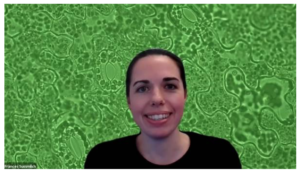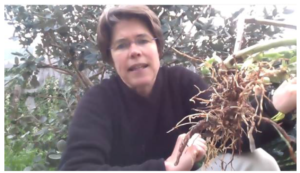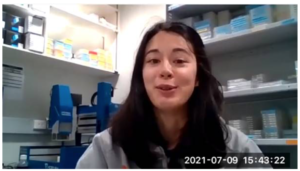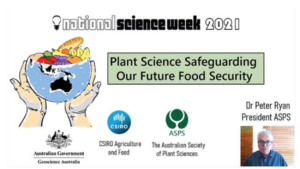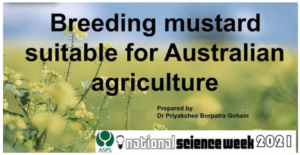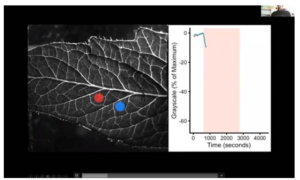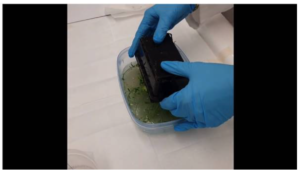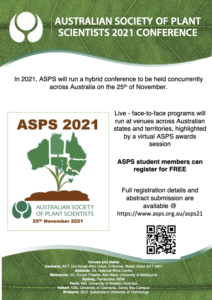- About
- Members
- Join
- Member log in
- Membership Renewal
- Member directory
- Life Members
- ASPS Life Member Professor Graham Farquhar
- ASPS Life Member Associate Professor Hendrik (Hank) Greenway
- ASPS Life Member Dr Marshall (Hal) D Hatch
- ASPS Life Member Dr Paul E Kriedmann
- ASPS Life Member Dr Mervyn Ludlow
- ASPS Life Member Emeritus Professor Rana Munns
- ASPS Life Member Conjoint Professor Christina E Offler
- ASPS Life Member Professor (Charles) Barry Osmond
- ASPS Life Member Emeritus Professor John W Patrick
- ASPS Life Member Dr Joe Wiskich
- Corresponding Members
- Elected Fellows
- Events
- Awards & Funding
- Employment
- Publications
- Research
- Teaching
- Menu
August 2021 Phytogen – National Science Week – That’s a Wrap.
29 August 2021
Welcome to Phytogen for August 2021. Here is an article summarising many National Science Week events throughout August. Thank you all for your contributions and hard work.
National Science Week has officially wrapped up for 2021. This year, the theme for ASPS events was “Plant Science Safeguarding Our Future Food Security”. ASPS kicked off with a “Meet a Plant Scientist” video series, with ASPS members at diverse career stages and representing a wide array of fields of plant science submitting 30s videos introducing themselves and their research – you can still see them all here: https://www.youtube.com/playlist?list=PLCjVjret6uSjalUbDCO8a8jjuJesKZ8y3.
Dr. Frances Sussmilch UTAS, Prof. Uli Mathesius ANU, and Sabrina Davies UWA, among many in the “Meet a Plant Scientist” video series.
In South Australia, Dr Megan Shelden, Dr Beth Loveys and Dr Georgia Koerber organised a very successful face-to-face event on 22nd August at the Waite Campus, University of Adelaide, with a series of engaging talks and tours explaining the pivotal role plant scientists and agriculturalists play in feeding and clothing us all. This included talks by Megan, Prof. Martin Cole, Prof. Rachel Burton, and PhD candidate Ali Gill, with Sciren running sessions for people to extract DNA from strawberries and make terrariums, and tours of the Waite Arboretum, Plant Accelerator, and TERN Plant and Soil Library.
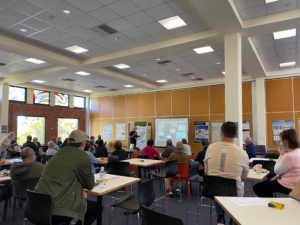
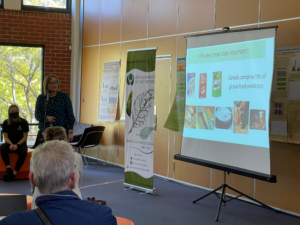
Prof. Martin Cole talking about Food Security and Dr. Megan Shelden explaining why cereal crops are important.
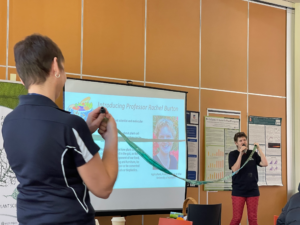
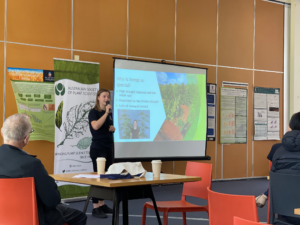
Prof. Rachel Burton and Dr. Beth Loveys showing people in Adelaide how long their digestive systems are and Ali Gill explaining why hemp is special.
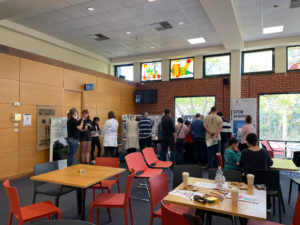
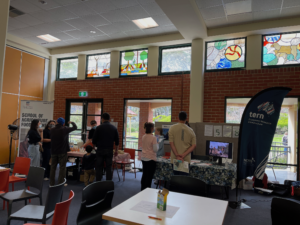
Stalls for University of Adelaide’s School of Agriculture, Food and Wine and TERN, Terrestrial Ecosystem Research Network, University of Adelaide’s Postgraduates Association at the Waite, the Australian Plant Phenomics Facility and the STEM academy.
In Victoria, Dr. Kim Johnson and Dr. Janet Wheeler shifted events online. They ran an interactive session called “Project Feed 10 billion” with 80 Virtual Schools Victoria, year 8-9 students and 10 teachers on 19th August. The session covered the challenges of feeding the future population with sustainable nutritious foods. Kim and Janet also ran a demonstration to 45 students and 5 teachers from Reservoir Views Primary School where they showed a healthy and less healthy meal going through the digestive system.
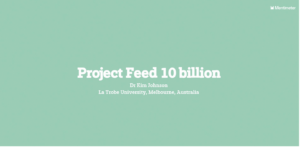
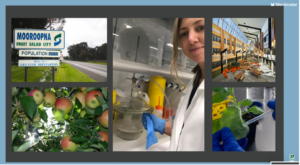
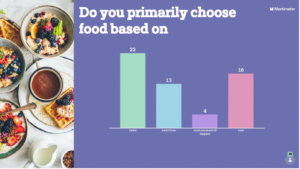 Dr. Kim Johnson with “Project Feed 10 billion” from La Trobe University and survey results from interactive session with 80 Virtual Schools Victoria, year 8-9 students.
Dr. Kim Johnson with “Project Feed 10 billion” from La Trobe University and survey results from interactive session with 80 Virtual Schools Victoria, year 8-9 students.
In Sydney, Dr. Claudia Keitel, in collaboration with the University of Sydney’s Plant Science and Agriculture academics, staff from the Sydney Institute of Agriculture (SIA) and the University’s Outreach Team, organised a series of talks and interactive activities online on the 20th August, with around 200 participants from 22 schools joining on the day. Talks from Prof. Brent Kaiser, Prof. Daniel Tan, Assoc. Prof. Brian Jones, Prof. Robert Park and Dr. Floris van Ogtrop focused on topics such as future opportunities for products and businesses based on plant protein, the future of cotton production, CRISPR as a 21st century breeding tool, genetic approaches to control plant diseases, and urban agriculture. The activities gave attendees the opportunity to learn how plants grow to produce vegetables we eat, how genetics and environmental conditions influence plant traits, how to fingerprint wheat chromosomes and identify chromosomal fragments introduced from wild relatives with Assoc. Prof. Mary Byrne, Assoc. Prof. Marcus Heisler, Dr. Claudia Keitel, Assoc. Prof. Rosanne Quinnell and Dr. Peng Zhang. You can find more information about this event here: https://www.sydney.edu.au/science/news-and-events/events/future-plants-for-food-security.html.
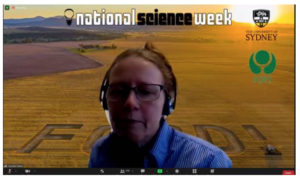
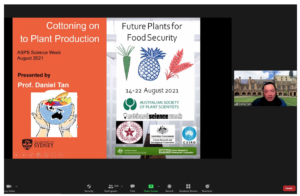
Dr. Claudia Keitel, addressing 206 participants from 22 schools, in Sydney and Prof. Daniel Tan giving a talk about the future of cotton production.
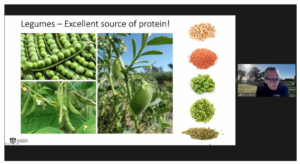
Prof. Brent Kaiser talking about the power of plant protein.
Queensland University of Technology (QUT) offered a virtual tour of the biology labs – you can check them out here: https://cdn.qut.edu.au/media/qut-science-experience-anz/ and https://my.matterport.com/show/?m=cEBNvWzjjw7.
Researchers from other universities and states recorded videos of talks and lab tours for our YouTube channel (https://www.youtube.com/channel/UC4-hDpe7OR3kwpMxy4ES6ng). The ACT was represented with fantastic talks from CSIRO and ANU researchers including our President Dr. Peter Ryan, Jess Hyles, Dr. TJ Higgins AO, Dr. Di He, Prof. Uli Mathesius and Dr. Ricky Milne, and Ryan Ruddick from Geoscience Australia (https://www.youtube.com/playlist?list=PLCjVjret6uSh67u7d2U2B1mGRFARal9mt).
The Byrt Lab at ANU walked us through Agrobacterium-mediated transformation using the floral dip method (https://www.youtube.com/watch?v=Hj0iM3zi6_E&list=PLCjVjret6uSg1pLNehyuIm01NTuIQH7PM). Early career researchers at Southern Cross University, including Dr. Jay Anderson, Master of Science candidate Janelle Schafer, and Dr Priyakshee Borpatra Gohain, each gave great talks about their research (https://www.youtube.com/playlist?list=PLCjVjret6uSjLV-oQh-iMEwaixzbn1zLm).
Prof. Ros Gleadow from Monash University talked about her research on how plants including sorghum and cassava make cyanide (https://www.youtube.com/watch?v=6egOt1qNo58&list=PLCjVjret6uSgZYVZ_DhQ8KZq8Vh5NIC9e).
Prof. Tim Brodribb from University of Tasmania showed us why leaves die during drought stress with a video depicting what happens during this process (https://www.youtube.com/watch?v=0M-sZETVoQ8&list=PLCjVjret6uShxXJbRyx1HIJZbEtyS8tK-).
ASPS President Dr. Peter Ryan in the introduction for the ASPS Science Week 2021 YouTube channel.
Dr. Priyakshee Borpatra Gohain’s talk, within a series from ECRs at Southern Cross University and Prof. Tim Brodribb from UTAS explaining why leaves die during drought.
Members of the Byrt Lab at ANU demonstrating floral dipping for Agrobacterium-mediated transformation.
We will keep the ASPS Science Week 2021 YouTube channel up, so you still have the opportunity to check out any videos you missed.
Registration is now open for our 2021 ASPS hybrid conference on the 25th of November.
An open letter from the Australian Society of Plant Scientists to the ARC
26 August 2021
Dear ASPS members,
Please consider adding your name to this letter from the ASPS executive to the ARC asking for reconsideration of reference to pre-prints within grant applications.
You can add you name to the form at then end of the letter at this link https://forms.gle/oxqhWLiKZaKiPSBE9
The text of the letter is also included below.
Thank you for your consideration, ASPS executive team.
Dear Professor Thomas
We are writing to you to register our very grave concern regarding the ARC’s implementation of an apparently new policy within the current Discovery Scheme round on the reference to pre-prints within grant applications. We are concerned that this will have serious negative consequences on the funding of high quality research within Australia. We understand this has impacted the recently announced DECRA and Future Fellowships, and hope prompt action can be taken ahead of finalising Discovery Projects for funding in 2022.
The pre-print policy is ambiguous
A very subtle change was made in the Instructions to Applicants in ROPE – Research Outputs which changed the sentence ‘Do not include pre-prints in your research output listing’ to ‘Do not include or refer to pre-prints in your application’. By contrast, the Instructions state that research outputs that are accessible to the research community can be referenced in the Project Description. Given that there was no mention of the change either in the Discovery Scheme Grant Guideline Changes or FAQ documents, it is reasonable for applicants to interpret that pre-prints only need to be excluded from the Research Outputs listing, and that they can be referred to elsewhere. Our understanding is that highly-ranked fellowship applications were ruled ineligible because they referenced a pre-print, but did not list it as an output.
The timing of the eligibility check is inefficient and distressing
The eligibility check with respect to this policy is apparently being conducted specifically for the highly ranked applications after assessments have been completed. This is an unnecessary and avoidable waste of the research community’s efforts invested in the process of assessments and rejoinders. Furthermore, it has undoubtably caused extreme distress to unsuccessful applicants who will have had good reason to feel optimistic about their chances. This is particularly concerning for fellowship applicants, many of whom are already in precarious career situations.
The pre-print policy is inconsistent with international standards
Major funding agencies around the world permit and encourage the reference to pre-prints within grant applications. These include the NIH, UKRI, ERC, Wellcome Trust, HFSP, EMBO and others. The ARC currently accepts various non-peer reviewed research outputs , such as Book Chapters or Editorials, to be listed in grant applications. So we would support inclusion of a pre-print section within the Research Outputs. We are confident the ARC’s assessors are capable of assigning appropriate weight to pre-prints when considering applicants’ track records.
We ask the ARC to immediately reconsider the implementation of this policy to ensure it does not negatively influence the outcomes of the current Discovery Project round for funding commencing in 2022 and prevent the ARC from funding the most promising Australian research. We also encourage the ARC to revisit the current pre-print policy for inclusion as research outputs for funding commencing in 2023 and beyond, so that it is in line with international research funders.
Kind regards,
The ASPS executive
ASPS 2021 conference and August GPC E-bulletin
23 August 2021
Dear members,
In 2021, the ASPS will run a hybrid conference held concurrently across Australia on the 25th of November. This will involve face-2-face local meetings in most states and include a joint virtual session to celebrate our ASPS award winners. See details in the flyer attached.
In sending this email, we are fully aware that with many states and territories in Australia under lockdown, uncertainty remains. While we are pushing ahead with an optimistic outlook, in the event that F2F meetings cannot be held, online options will be explored. Refunds/registration fee reductions would be available.
Kind regards,
Simon
ASPS Honorary Secretary
The Global Plant Council August E-bulletin can be accessed HERE.
Recent Posts
Tags
Archives
- June 2025
- May 2025
- April 2025
- March 2025
- February 2025
- January 2025
- December 2024
- November 2024
- October 2024
- September 2024
- August 2024
- July 2024
- June 2024
- May 2024
- April 2024
- February 2024
- January 2024
- November 2023
- October 2023
- September 2023
- August 2023
- July 2023
- June 2023
- May 2023
- April 2023
- March 2023
- February 2023
- December 2022
- November 2022
- October 2022
- September 2022
- August 2022
- July 2022
- June 2022
- May 2022
- April 2022
- March 2022
- February 2022
- January 2022
- December 2021
- November 2021
- October 2021
- September 2021
- August 2021
- July 2021
- June 2021
- April 2021
- March 2021
- February 2021
- January 2021
- December 2020
- November 2020
- October 2020
- September 2020
- August 2020
- July 2020
- June 2020
- May 2020
- April 2020
- March 2020
- February 2020
- January 2020
- December 2019
- November 2019
- October 2019
- September 2019
- August 2019
- July 2019
- June 2019
- May 2019
- April 2019
- March 2019
- February 2019
- January 2019
- December 2018
- November 2018
- October 2018
- September 2018
- August 2018
- July 2018
- June 2018
- May 2018
- April 2018
- March 2018
- February 2018
- January 2018
- December 2017
- November 2017
- October 2017
- September 2017
- August 2017
- July 2017
- June 2017
- May 2017
- April 2017
- March 2017
- February 2017
- January 2017
- December 2016
- November 2016
- October 2016
- September 2016
- August 2016
- July 2016
- June 2016
- May 2016
- April 2016
- March 2016
- February 2016
- January 2016
- December 2015
- November 2015
- October 2015
- September 2015
- August 2015
- July 2015
- June 2015
- May 2015
- April 2015
- March 2015
- February 2015
- January 2015
- December 2014
- November 2014
- October 2014
- September 2014
- August 2014
- July 2014
- June 2014
Copyright 2017 Australian Society of Plant Scientists Disclaimer & Privacy
Website by Michael Major Media

